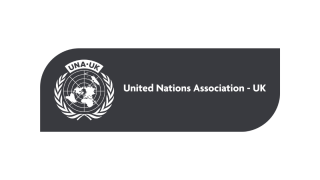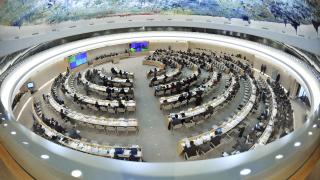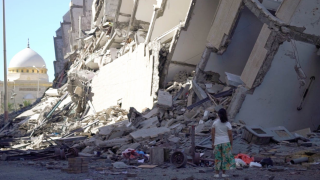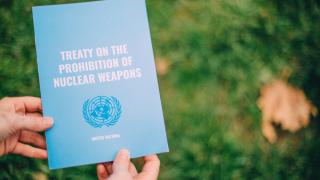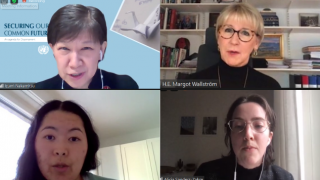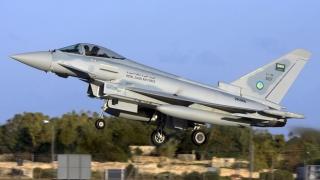
This blog by Ben Donaldson, UNA-UK's Head of Campaigns , was originally published on 7 March 2018 by Control Arms - a coalition which works to end the flow of arms and ammunition that fuel conflict, poverty and human rights abuses.
Whatever good the UK might be doing on overseas aid or peacekeeping, the UK is severely undermining it on Yemen.
The level of destruction is eye-watering. With each indiscriminate Saudi airstrike using British weapons, UK complicity deepens. The grim daily reality is on average 13 new civilian casualties. Hospitals, schools and weddings destroyed. Over a million infected with Cholera and eight times that number on the brink of famine. UNICEF Yemen summed it up: “There seems to be no hope”.
As a British citizen I am ashamed. How could Prime Minister Theresa May justify to a Yemeni whose life has been shattered, that this week she is playing host to the architect of much of this suffering: Saudi Crown Prince Mohammed bin Salman? That Britain is laying out the red carpet to help secure more trade with a country that an independent UN panel has accused of using the “threat of starvation as an instrument of war”?
The UK’s irresponsible approach to arms exports is in sharp contrast to increasing numbers of our European neighbours. When you combine recent announcements from Norway, Germany and Finland to the existing policies of Netherlands and Sweden to restrict exports to those intervening in Yemen, the UK looks increasingly like one of the bad guys.
The Security Council has collectively failed Yemen but the UK must shoulder some of the responsibility. As a permanent (P5) member and as the Council lead on Yemen, questions should be asked as to why there has been so little action. Over three years of conflict there has been just one substantive resolution and a handful of presidential and press statements. While all parties to the conflict are at fault, it is the Saudis that escape any direct criticism. Can it be coincidence that it is their Crown Prince who is dining with the Queen at Buckingham Palace? With this lack of impartiality, it is hard to see how the UK can be effective in trying to broker an end to hostilities.
Is the UK’s policy to maintain at all costs its ‘strategic’ relationship with Saudi Arabia defendable? The opportunity cost of doing business with Mohammed bin Salman will turn out to be severe. To keep Raytheon’s Paveway IV bombs flowing from our shores, the Department of International Trade has had to trample over Article 7 of the Arms Trade Treaty, which states that transfers cannot take place if they could be used to commit serious violations of international humanitarian law. Any common-sense reading of the situation in Yemen clearly shows this threshold was met long ago.
Given that the UK considers the Arms Trade Treaty a key building block of the rules-based international system and believes that the preservation of this very system is vital to the UK’s future security and prosperity, the UK is only hurting itself in the long run.
International rules and institutions including the UN are only as strong as the political will invested in them. The international system that has insulated the West from conflict for 73 years is fraying. By cherry-picking its favourite bits of multilateralism and ignoring others, the UK is contributing to the problem.
For all the chaos, Brexit is forcing a long-overdue debate on Britain’s role in the world to the fore. My vote is for a global Britain which places human rights and the protection of civilians above short-term business interests. For a country that embraces international cooperation as our best hope to secure our future. For a Britain with a sense of global solidarity.
By throwing the rule-book out of the window when it comes to Saudi Arabia, the UK strikes two blows, one to the credibility of the international system, and another to its own national interest.
Image: Typhoon jet manufactured by BAE Systems and operated by the Royal Saudi Air Force (Creative Commons)

